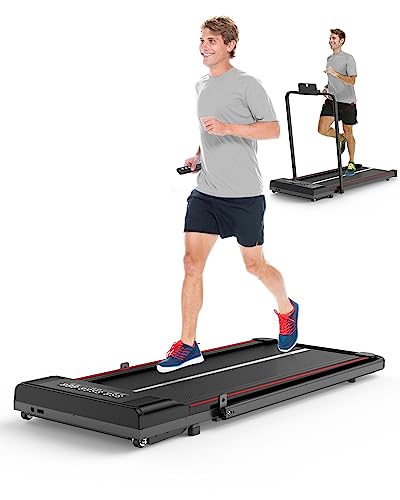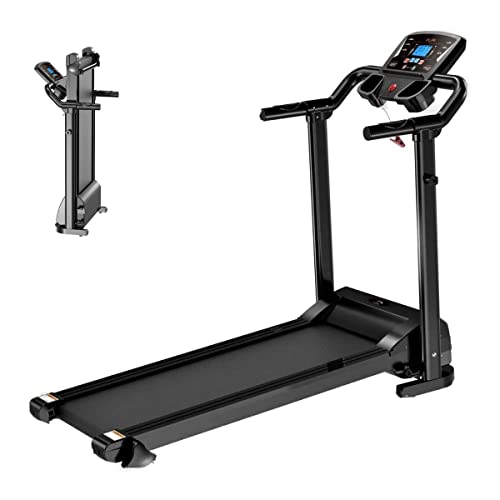Walking Machine 101 The Ultimate Guide For Beginners
페이지 정보
작성자 Scot Berry 작성일25-07-23 09:33본문

The Walking Machine: A Comprehensive Guide to Your Fitness Companion
In today's fast-paced world, where time is a luxury, maintaining a constant workout regimen can be a difficulty. For lots of, a walking machine-- frequently referred to as a treadmill-- works as an ideal physical fitness companion. This post offers an in-depth look at walking machines, including their advantages, types, maintenance pointers, and frequently asked concerns.
Why Choose a Walking Machine?
Walking machines offer a practical and efficient method to incorporate cardiovascular exercise into every day life. Here are a number of essential advantages:
- Convenience: Walking machines enable individuals to work out anytime, regardless of climate condition or time constraints. They are ideal for busy schedules.
- Flexibility: Users can stroll, jog, or perform at their own speed and intensity.
- Safety: Walking machines provide a lower risk of injury compared to outdoor walking or running, particularly for novices or those recuperating from injuries.
- Tracking Progress: Many treadmills featured integrated displays that track metrics like speed, range, and calories burned.
Kinds Of Walking Machines
When considering a walking machine, it's necessary to select the best type based upon private physical fitness objectives and space constraints. Below are the main kinds of walking machines:
| Type | Description |
|---|---|
| Manual Treadmills | These machines do not have a motor, and users require to walk or run to turn the belt. |
| Electric Treadmills | Powered by an electric motor, enabling users to set the speed and incline easily. |
| Folding Treadmills | Created for simple storage, these treadmills can be folded up when not in use. |
| Desk Treadmills | Ideal for a dual work and exercise environment, these compact machines allow walking while working. |
| Slope Trainers | These enable users to simulate uphill walking, enhancing workout strength and calorie burn. |
Selecting the Right Walking Machine
Selecting the ideal walking machine can considerably affect motivation and efficiency. Here are some elements to consider:
Key Features to Look For
- Motor Power: An effective motor guarantees a smooth and constant exercise. For periodic walkers, a 1.5 HP motor is usually adequate; for much heavier use, look for 3.0 HP and above.
- Belt Size: A wider and longer belt provides more space for a comfortable stride. Standard sizes range from 16 inches broad and 50 inches long.
- Incline Options: Adjustable slope settings can replicate walking or running uphill, increasing the strength of the exercise.
- Shock Absorption: Good shock absorption lowers the danger of joint injuries and enhances comfort.
- Console Features: Look for built-in exercises, heart rate monitors, and connection features like Bluetooth for a more engaging experience.
Budget plan Considerations
Walking machines can be found in a vast array of rates, depending on functions and building quality. Here's a rough spending plan breakdown:
| Price Range | Features |
|---|---|
| Under ₤ 300 | Standard manual or small electric treadmills with minimal features. |
| ₤ 300 - ₤ 700 | Advanced electric treadmills with incline, medium power motors, and better guarantees. |
| ₤ 700 - ₤ 1500 | High-quality electric treadmills with larger built-in displays, substantial features, and service warranties. |
| ₤ 1500 and above | High-end designs offering innovative innovation, features, and resilient construction for major physical fitness lovers. |
Maintenance Tips for Your Walking Machine
To make sure longevity and ideal efficiency of a walking machine, think about the following upkeep suggestions:
- Regular Cleaning: Dust and sweat can build up on the machine and the belt. Clean down the surfaces and clean the belt routinely.
- Lubrication: Depending on the model, oiling the running belt occasionally can prevent wear and tear. Examine the manufacturer standards for recommended lubrication schedules.
- Examination: Periodically check the machine for loose screws or worn parts. Tighten up and change as needed.
- Calibration: Occasionally, examine the calibration of your machine's metrics to ensure they provide accurate data.
- Proper Use: Follow the producer's suggestions for weight limitations and functional guidelines.
FAQs About Walking Machines
1. Are walking machines an excellent workout?
Yes, walking machines supply an excellent cardiovascular exercise, can help with weight reduction, and enhance overall health.
2. How typically should I utilize a walking machine?
Go for at least 150 minutes of moderate-intensity aerobic activity weekly, which can easily be attained with regular sessions on a walking machine.
3. Can I lose weight on a walking machine?
Yes, integrating a walking machine regimen into a healthy diet can promote weight loss, specifically if combined with periods and incline training.
4. Is it safe for seniors to utilize a walking machine?
Yes, walking machines can be safe for seniors with low-impact settings and safety functions like handrails. Nevertheless, people need to seek advice from their doctor before beginning any workout program.
5. What's the distinction between a treadmill and a walking machine?
The term "walking machine" normally refers to a Treadmill Price meant for walking, while "treadmill" can describe machines utilized for various strengths, including running.
With their flexibility and benefit, walking machines can substantially improve one's physical fitness journey. By carefully selecting the right type, ensuring appropriate maintenance, and incorporating different exercise methods, users can maximize their walking machine's benefits. As with any exercise program, consistency is key to achieving long lasting fitness outcomes.

댓글목록
등록된 댓글이 없습니다.


